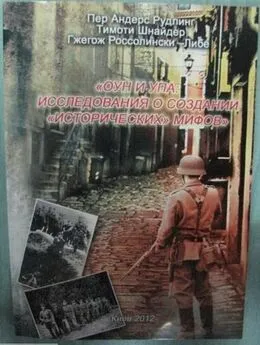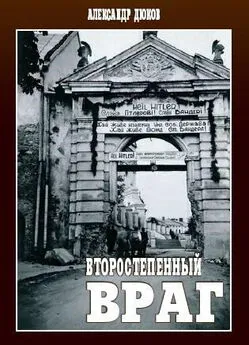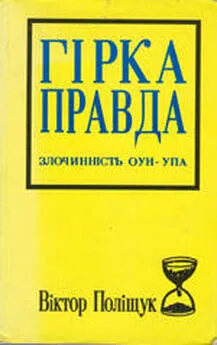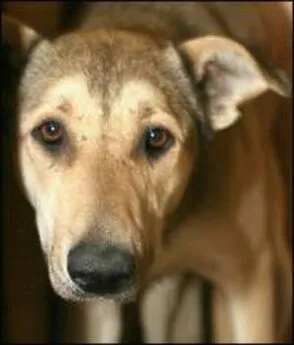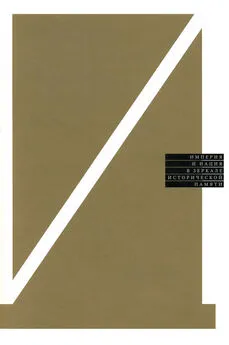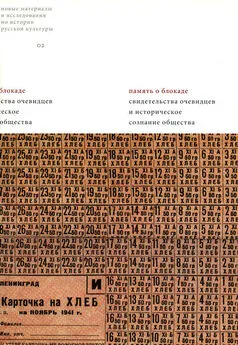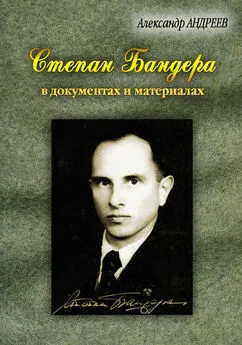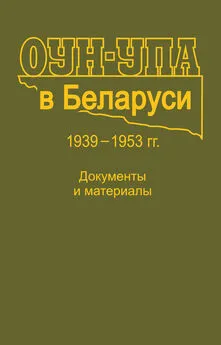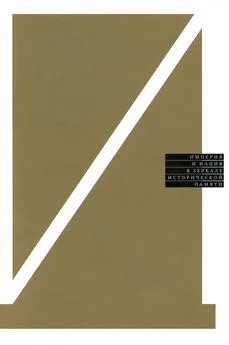Пер Рудлинг - ОУН и УПА: исследования о создании исторических мифов. Сборник статей
- Название:ОУН и УПА: исследования о создании исторических мифов. Сборник статей
- Автор:
- Жанр:
- Издательство:Золотые ворота
- Год:2012
- Город:Киев
- ISBN:978-966-2246-16-2
- Рейтинг:
- Избранное:Добавить в избранное
-
Отзывы:
-
Ваша оценка:
Пер Рудлинг - ОУН и УПА: исследования о создании исторических мифов. Сборник статей краткое содержание
Сборник статей «ОУН и УПА: исследования о создании «исторических» мифов» является вторым изданием в серии «Историческая правда», основанной Международным антифашистским фронтом в 2011 году.
В издании представлены исследования современных западных ученых — Пера Андерса Рудлинга, Тимоти Д. Шнайдера, Гжегожа Россолинского-Либе на тему украинского радикального национализма, фашизма, создания антиисторических мифов вокруг ОУН-УПА, преступлений против человечности, попыток героизации и реабилитации этих организаций и их членов.
Большинство исследований в Украине публикуются впервые.
ОУН и УПА: исследования о создании исторических мифов. Сборник статей - читать онлайн бесплатно полную версию (весь текст целиком)
Интервал:
Закладка:
311
See, for instance the story of Ludwik Wrodarczyk, a Roman Catholic village priest in Okopy in Volhynia, a rescuer of Jews who in 2000 was designated as Righteous of Nations. The UPA kidnapped and killed him in December 1943. Maria Debowska and Leon Popek, Duchowie" stwo diecezji!uckiej: Ofi ary wojny i represji okupantów, 1939–1945 (Lublin: Polihymnia Wydawnictwo Muzyczne, 2010). In Hanachevka (Hanaczów) in Galicia, the commander of the Polish self-defense, Kazimierz Wojtowicz, assisted dozens of Jews in the village. The Jews of Hanachevka organized a Jewish platoon, fi ghting the UPA together with the local Poles within the ranks of Armja Krajowa. Wojtowicz survived the war and was, together with his two brothers designated as Righteous of Nations. Marples, Heroes and Villains, 206; Jerzy Wigierski, W lwowskiej Armii Krajowej (Warsaw: PAX), ch. 2–7; Motyka, Ukranska partzyantka, 382.
312
“Sered heroiv novoho romanu Zabuzhko ‘Muzei pokynutykh sekretiv’ kolysgni v’iazni tiurmy ‘na Lontskoho’” Press-tsentr TsDVR, December 24, 2009: http://upa.in.ua/book/?p=981#more-981 (accessed December 27, 2010). Zabuzhko writes that V’’iatrovych’s center provided her with “half a bag full of working material — xero copies, DVDs, photographs and memoirs on the history of the Ukrainian Resistance — the Ukrainian Insurgent Army (UPA).” “Popil Klaasa,” Ofitsiina storinka Oksany Zabuzhko, http://www.zabuzhko.com/ua/critique/ukrhellebosch.html (accessed December 27, 2010).
313
“L’vivs’ki novyny: Oksana Zabuzhko: ‘Ia ne pysala istorii UPA — ia pysala lav-stori,’” Vysokyi zamok, January 26, 2010: http://news.lvivport.com/content/view/20694/26/ (accessed December 27, 2010).
314
Only 6 percent of Ukrainians had a “very positive” attitude toward the OUN(b), and 8 percent “basically positive,” whereas 30 percent were “very negative,” and 15 percent “generally negative.” The attitudes to the UPA was similar, with 5 percent very positive, 8 percent generally positive, while 29 percent very negative, and 16 percent generally negative. Signifi cantly, the attitudes within the younger generation did not differ signifi cantly from the older; neither did the attitude within the group of highly educated differ much from the population in general. The exception was Galicia, where 62 percent of those surveyed had a positive attitude to OUN(b), and 59 to UPA. Even in Volhynia only 5 percent of respondents were very positive, and 11 percent generally positive to UPA. Asked about war criminality, 35 percent of respondents thought OUN(b) and UPA were guilty of mass murder of Ukrainians, Jews, and Poles; 6 percent of murdering people from one of these groups. Only 14 percent of respondents thought them innocent of mass murder. Ivan Kachanovs’kyi, “Ukraintsy ne veriat v mify ob OUN i UPA,” Fraza: http://www.fraza.ua/print/14.10.09/76064.html (accessed January 23, 2010).
315
Asked, “How would you defi ne your country’s relation to the following groups during World War II?” 64 percent of the respondents answered that relations with Ukrainians were bad, a higher number even than Germans (63 percent) and Russians (57 percent). Wojciech Szacki and Marcin Wojciechowski. “Zli Niemcy. +li Ukraincy: To Niemcy byli g"ównymi wrogami Polaków w II wojnie i to oni zadali nam najwi$cej cierpie#. Ale najgorzej wspominamy kontakty z Ukraincami,” Gazeta Wyborcza, August 24, 2009, 4.
316
The question, “Who was responsible for the crimes committed in Volhynia in 1943?” 14 percent answered “Ukrainians,” while only 5 percent answered “UPA, Ukrainian nationalists, Ukrainian military formations.” A full 19 percent blamed “Russians, the USSR, NKVD. Among them, 1 percent blamed ‘Ukrainians and Russians” and “Ukrainians executing Russian orders”; 1 percent blamed “Germans” and “Ukrainians, on German orders”; 2 percent blamed “Poles and Ukrainians,” “Mutual slaughter,” and “both sides”; 1 percent maintained that “Others were responsible,” or that it was “unclear” who was to blame. By far the largest group, 57 percent, answered “Don’t know, have not heard about it, diffi cult to answer.” Katarzyna Makaruk, “Wo" y# 1943,” Komunikat z bada", Warsaw, July 2008, BS/110/2008, Centrum Badania Opini Spo" ecznej, CBOS, 4: http://www.cbos.pl/SPISKOM.POL/2008/K_110_08.PDF (accessed December 26, 2010).
317
Andreas Umland, “Die andere Anomalie der Ukraine: ein Parlament ohne rechtsradikale Fraktionen,” Ukraine-Analysen, no. 41 (2008): 7–10.
318
Ernest Renan, “What Is a Nation?” in Homi K. Bhabha, ed., Nation and Narration (London: Routledge, 1990), 11.
319
Bruno Bettelheim, The Uses of Enchantment: The Meaning and Importance of Fairy Tales (New York: Vintage, 1989), 7–8
320
Ibid., 9–10.
321
Harald Welzer, Sabine Moller, and Karoline Tschuggnall, “Opa war kein Nazi”:Nationalsozialismusnund Holocuast im Familiengedächtnis (Frankfurt am Main: Fischer Taschenbuch Verlag, 2002), 210.
322
Ibid., 207.
323
Ibid., 209.
324
Peter Niedermüller, “Der Mythos der Gemeinschaft: Geschichte, Gedächtnis und Politik im heutigen Osteuropa,” in Andrea Corbea Hoise, Rudolf Jaworski, and Monika Sommer, eds., Umbruch im östlichen Europa: Die nationale Wende und das kollektive Gedächtnis (Innsbruck: Studien Verlag, 2004), 11–26.
325
Gudrun Persson, “On the Meaning of the Tristesse and the Lie,” Baltic Worlds 3, no. 2 (June 2010): 16, citing Andrei Zubov, Istoriia Rossii: XX vek, 1894–1939 (Moscow: Astrel, 2009), 933.
326
Dmytrii Rybakov, “Marko Tsarynnyk: Istorychna napivpravda hirsha za odvertu brekhniu”; LB.ua, November 5, 2009. http://society.lb.ua/life/2009/11/05/13147_Marko_TSarinnik_Istorichna_napivp. html (Accessed Nov. 6, 2009); Himka, “True and False Lessons; Vasyl’ Rasevych, “Zamknute kolo ‘spetsial’noi’ ukrainskoi istorii,” Zaxid.net, September 13, 2010: http://zaxid.net/article/74357 (accessed September 16, 2010).
327
In April 2007, President Yushchenko submitted to the Verkhovna Rada a draft law against Holodomor denial, which, had the law passed, would criminalize denial of the genocidal character of the famine of 1932–1933. The Day Weekly Digest (Kyiv), no. 11, April 3, 2007; Ilya Khineiko, “Russian Duma’s Discussion of Second World War Revisionism in the Near Abroad States,” Current Politics in Ukraine, June 23, 2009: http://ukraineanalysis.wordpress.com/ [CIUS Stasiuk Program Blog] (accessed October 2, 2009). As there is no consensus whether the famine was an act of genocide, this would, technically, have made a number of senior scholars and academics, including Mark B. Tauger, R. W. Davis, Stephen G. Wheatcroft, Michael Ellman, Lynne Viola, Moshe Lewin, even Robert Conquest — who remains ambivalent on the — liable for jail time in Ukraine. On the assessment of the famine as genocide, see Marples, Heroes and Villains, 72, 313, n. 1.
328
Roman Serbyn, “Erroneous Methods in J.-P. Himka’s Challenge to “Ukrainian Myths,” August 7, 2011, Current Politics in Ukraine Blog: Opinon and analysis on current events in Ukraine, Stasiuk Program, CIUS, University of Alberta, ed. David R. Marples. http://ukraineanalysis.wordpress.com/ (accessed October 1, 2011).
329
The following commentary by Taras Hunczak is fairly typical in this regard: “Despite overwhelming evidence exonerating the OUN and Roman Shukhevych, there are still individuals, particularly those with communist leanings or followers of the Moscow trend to condemn the Ukrainians’ struggle for independence, who continue to slander the leaders of the Ukrainian resistance movement.” Taras Hunczak, “Shukhevych and the Nachtigall Battalion: Moscow’s Fabrications,” Ukrainian Weekly, no. 37 (September 13, 2009): 18.
330
Ukrainian Canadian Congress, “Ukraine’s President Recognized Ukraine’s Freedom Fighters,” UCC Press release, email of February 1, 2010. On the UCC’s strategy to “defend” their heroes, see Rudling, “Iushchenkiv fashyst,” 252, 295–296 and John-Paul Himka, “Interventions: Challenging the Myths of Twentieth-Century Ukrainian History,” in a forthcoming Ab Imperio volume on Geschichtspolitik, sponsored by the Carnegie Foundation, ed. Alexei Miller.
331
Pres-sluzhba Prezydenta Viktora Ianukovycha, “Rishenniam sudu prezydents’kyi ukaz ‘Pro prysvoennia S. Banderi zvannia Heroi Ukrainy’ skazovano,” press release, January 12, 2011, Prezydent Ukrainy Viktor Ianukovych: Ofitsiine internet-predstavnytsvo: http://www.president.gov.ua/news/19103.html (accessed February 12, 2011).
332
“Babi Yar transferred to Culture Ministry,” Ukrinform: Ukrainian National News Agency, March 2, 2011.
333
Askol’d Lozyns’kyj (b. 1952), a New York lawyer and OUN(b)-activist, is a former president of the World Congress of Free Ukrainians, and the son of Evhen Lozyns’kyj.
334
Wolodymyr Derzko, “Ukrainian Diaspora must learn how to play hardball with Yanukovych,” Kyiv Post, September 27, 2010: http://www.kyivpost.com/news/opinion/op_ed/detail/84019/(accessed October 13, 2010); Askold S. Lozynskyj, “Anti-Semitism charges don’t stick against Ukrainian nationalist group,” Kyiv Post, December 20, 2010: http://www.kyivpost.com/news/opinion/op_ed/ detail/93235/ (accessed December 24, 2010).
335
Olena Tregub, “Ukrainian-Americans reject meeting with Yanukovych,” Kyiv Post, September 23, 2010: http://www.kyivpost.com/news/nation/detail/83599/ (accessed October 15, 2010).
336
“Paul Grod: ‘My position on Ukraine. was agreed with leaders of UCC’s member organizations,’” interview by Martha Onufriv, EPOSHTA, September 28, 2010:http://www.eposhta.com/newsmagazine/ePOSHTA_100928_CanadaUS.html#fo1a (accessed October 15, 2010).
337
Lozynskyj, “Anti-Semitism charges don’t stick.”
338
Askold S. Lozynskyj, “How insensitive bigots continue to play Ukrainians and Jews against each other,” Kyiv Post, November 8, 2010: http://www.kyivpost.com/news/opinion/op_ed/detail/89252/ (accessed November 8, 2010); Peter O’Neil, “My role in a dark conspiracy,” Letter From Paris by Peter O’Neil,November10, 2010:http://communities.canada.com/shareit/blogs/letterfromparis/default.aspx?PageIndex=2 (accessed November 13, 2010).
339
Lozynskyj, “Rewriting history,” reprinted as Askol’d Lozyns’kyi, “Perepysuvannia istorii: z perspektyvy dokaziv,” 204–210; also Rudling, “Iushchenkiv fashyst,” 255, 302, both in Amar, Balyn’skyi, and Hrytsak, Strasti za Banderoiu.
340
Lozynskyj, “Anti-Semitism charges don’t stick.”
341
Onufrir interview, “My position on Ukraine.”
342
Peter O’Neil, “Ukrainian museum toured by Harper shows ‘one-sided’ history of atrocities, critics say,” Edmonton Journal, November 5, 2010: http://www.edmontonjournal.com/news/Ukrainian+museum+toured+Harper+show+sided+history+atrocities+critics/3785861/story.html (accessed November 6, 2010).
Читать дальшеИнтервал:
Закладка:
